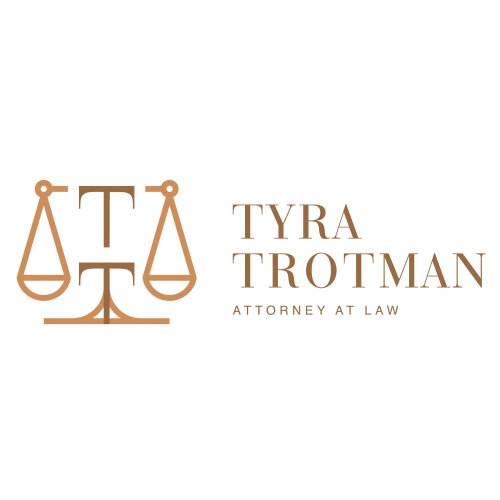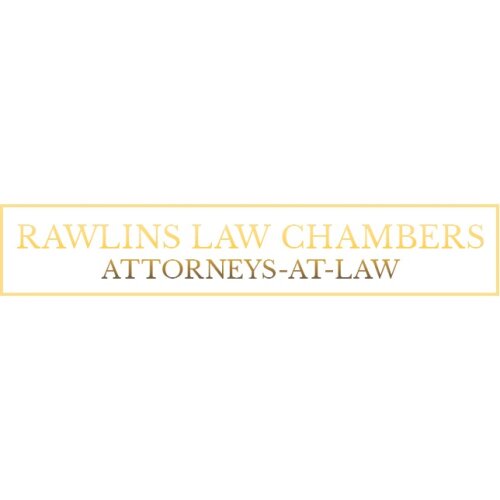Best Adoption Lawyers in Barbados
Share your needs with us, get contacted by law firms.
Free. Takes 2 min.
Free Guide to Hiring a Family Lawyer
Or refine your search by selecting a city:
List of the best lawyers in Barbados
About Adoption Law in Barbados
Adoption in Barbados is governed by the Adoption Act, which outlines the legal process for adopting a child in the country. This act sets out the requirements for eligibility, the procedures to be followed, and the rights and responsibilities of adoptive parents.
Why You May Need a Lawyer
Adopting a child can be a complex legal process, and there are many situations where you may need a lawyer's assistance. Some common reasons include navigating the adoption process, ensuring that all legal requirements are met, handling any legal challenges that may arise, and protecting your rights as an adoptive parent.
Local Laws Overview
Key aspects of adoption laws in Barbados include the requirement for adoptive parents to be at least 25 years old, the need for consent from the child's birth parents or legal guardians, and the involvement of the Barbados Adoption Board in approving all adoptions. It is important to understand these laws and procedures before pursuing adoption in Barbados.
Frequently Asked Questions
1. Can anyone adopt a child in Barbados?
Adoption in Barbados is generally open to individuals who meet the legal requirements, including being at least 25 years old and meeting the financial and emotional stability criteria set out by the Adoption Act.
2. Do I need the consent of the child's birth parents to adopt?
Yes, the consent of the child's birth parents or legal guardians is usually required for an adoption to proceed in Barbados.
3. How long does the adoption process take in Barbados?
The adoption process in Barbados can vary in length, but it typically takes several months to complete due to the necessary legal procedures and approvals.
4. What rights do adoptive parents have in Barbados?
Adoptive parents in Barbados have the same rights and responsibilities as biological parents, including the right to make decisions for the child's welfare and upbringing.
5. Can I adopt a child from another country while living in Barbados?
Yes, it is possible to adopt a child from another country while living in Barbados, but you will need to comply with the relevant international adoption laws and procedures.
6. What is the role of the Barbados Adoption Board in the adoption process?
The Barbados Adoption Board is responsible for overseeing all adoptions in the country, including approving prospective adoptive parents and ensuring that all legal requirements are met.
7. How much does it cost to adopt a child in Barbados?
The cost of adopting a child in Barbados can vary, depending on factors such as legal fees, court costs, and any necessary home studies or assessments.
8. What are the age requirements for adopting a child in Barbados?
Prospective adoptive parents in Barbados must be at least 25 years old to be eligible to adopt a child.
9. Can single individuals adopt a child in Barbados?
Yes, single individuals are eligible to adopt a child in Barbados, provided they meet all other legal requirements.
10. What support services are available for adoptive families in Barbados?
There are various support services available for adoptive families in Barbados, including counseling, financial assistance, and resources for post-adoption support.
Additional Resources
For more information on adoption in Barbados, you can contact the Barbados Adoption Board or seek guidance from organizations such as the Adoption Association of Barbados.
Next Steps
If you are considering adoption in Barbados and need legal assistance, it is recommended to consult with a qualified adoption lawyer who can guide you through the process and ensure that your rights are protected. Be sure to familiarize yourself with the local laws and procedures to make the adoption process as smooth as possible.
Lawzana helps you find the best lawyers and law firms in Barbados through a curated and pre-screened list of qualified legal professionals. Our platform offers rankings and detailed profiles of attorneys and law firms, allowing you to compare based on practice areas, including Adoption, experience, and client feedback.
Each profile includes a description of the firm's areas of practice, client reviews, team members and partners, year of establishment, spoken languages, office locations, contact information, social media presence, and any published articles or resources. Most firms on our platform speak English and are experienced in both local and international legal matters.
Get a quote from top-rated law firms in Barbados — quickly, securely, and without unnecessary hassle.
Disclaimer:
The information provided on this page is for general informational purposes only and does not constitute legal advice. While we strive to ensure the accuracy and relevance of the content, legal information may change over time, and interpretations of the law can vary. You should always consult with a qualified legal professional for advice specific to your situation.
We disclaim all liability for actions taken or not taken based on the content of this page. If you believe any information is incorrect or outdated, please contact us, and we will review and update it where appropriate.
Browse adoption law firms by city in Barbados
Refine your search by selecting a city.









